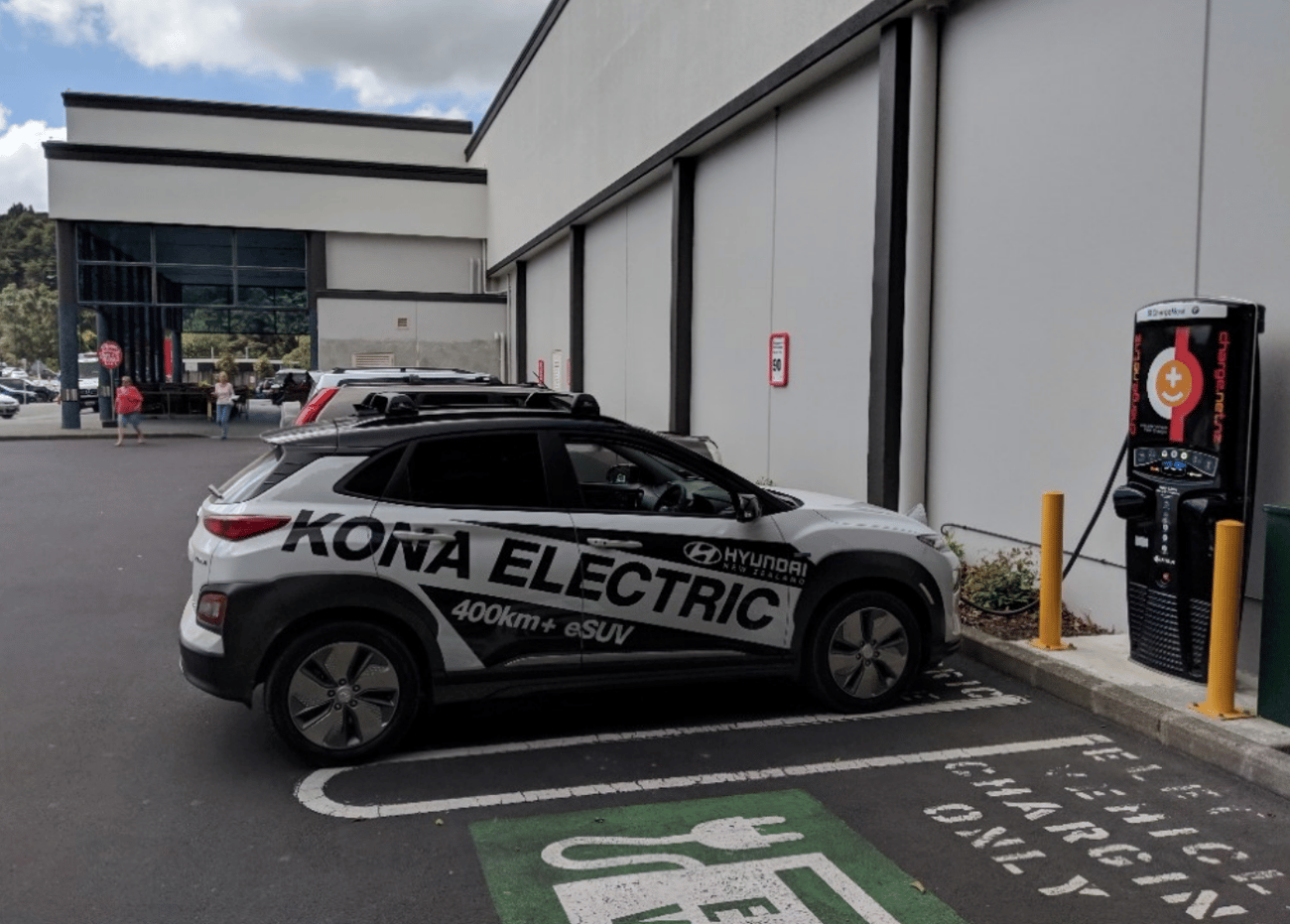Are you worried about range anxiety in an EV? Here’s why it’s all in the mind

- Read Zephyr’s first column in this series, ‘Could EVs be the key to super commuting? Here’s how I found driving the Hyundai Kona EV for a week‘ here.
The fact that Hyundai have released an Electric Compact SUV with a range of 400+ km means that a lot of people are very interested in the Hyundai Kona. As someone who spends three hours a day in a car, I certainly was. For a super commuter with a daily run of 170km, a normal BEV isn’t ideal. There are cars with 200km+ ranges but I’d have to charge every night. Living in a rural area, with lots of trees around power lines, we have a quite a few power cuts. I have an 4kWh array of solar panels on my roof and 10kWh battery storage, that’s not going to charge a car, it just means I pay bugger all to the power company.
As mentioned in my first article, I got the Kona with a Guess-o-meter stating 414km. The listed energy consumption is 14.4kWh/100km. However, I found my driving range was 500km+. I probably averaged 13kWh/100km for the five days I commuted (the best was a 12.1kWh/100km). The weekend was slightly higher. I drove for three days before I charged the car for the first time. That was 415km travelled and I still had 16kWh on the battery.
Most households (85 percent homes in New Zealand have off–street parking) and businesses with a power point are a potential charging station for an EV. Over the next few decades, as New Zealand makes the transition to EVs, gas stations will become largely redundant. If we make our zero carbon target by 2050, they will be few and far between.
As we make that transition, we’ll see car parks and businesses install fast chargers for their customers and own vehicles. Most vehicles sit around doing nothing 80 percent of the time, so there are plenty of opportunities to charge them. Installing those chargers will cost money but it’ll generally be a one-year ROI on the cost of fuel for a business. With a few more EVs, I’d look to encourage our employees with a fast charger at work. Currently we only have one employee who has a Mitsubishi Outlander PHEV and Nissan Leaf BEV. In my opinion, that’s currently the best (in terms of accessibility and affordability) EV combo for a suburban commuter and family vehicle.
On the road, we’ll find fast food joints and cafes installing fast chargers to attract dine-in customers. A company like ChargeNet will probably have McDonald‘s banging down the doors to install fast chargers in its small–town franchises.
No gas and no road user charges till 2021 saves a lot of money for a super commuter like me. I know many people think travelling that far is crazy – a Stuff article this last week about a fellow super commuter saw his lifestyle choice ripped to shreds in the comments section.
To those people who think super–commuting is dumb, I have 500,000 reasons that say you’re wrong, and many more if you add the finance costs. That’s the amount I saved buying a property out of Auckland.
Instead of buying a very average house in a very average suburb, I bought a small house on a quarter acre, 200 metres from the water, in what can easily be argued as one of the best areas in the region. The large number of visitors we get every weekend to the local beaches and market shows that many people living in the city seem to agree. Is that not the original Kiwi dream? Rather than being mortgaged up to your eyeballs for a no section, cross lease, suburban nightmare.
There are planned to be an extra 25,000 houses in my nearest town of Warkworth over the next few decades. It’s even greater in West and South Auckland. You just need to look at the property development just over the Bombay hills in Pokeno. I recently had a colleague commuting from Hamilton to Auckland. Even with workplaces becoming more flexible and mobile, there will be more super commuters in the future. Only they won’t be called super-commuters any more – it’ll be quite normal. The cost of petrol for those commutes makes the case for EVs very strong. With a range of 500km or more, the Hyundai Kona is up for the challenge.
- Zephyr was lent a Hyundai Kona Electric to test drive for a week courtesy of Hyundai New Zealand. This review is entirely his own.




